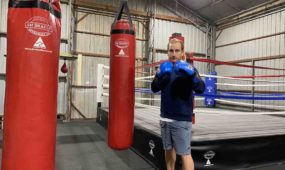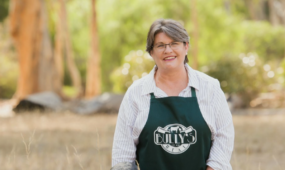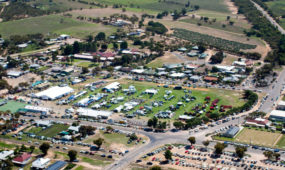How to become a space entrepreneur
Lifestyle
IDENTIFYING ways to solve people’s problems cheaply, finding a niche in the market, hard work and a sense of adventure are the keys to succeeding in the space industry.

Sign up to receive notifications about new stories in this category.
Thank you for subscribing to story notifications.
That’s the view of some of the southern hemisphere’s leading space entrepreneurs, who addressed International Space University students in South Australia recently.
Speakers at the 2016 Southern Hemisphere Space Studies Program Space and Entrepreneurism public event in Adelaide on January 28 have highlighted the challenges and opportunities on offer in the space industry.
Alex Grant, whose South Australian company Myriota is developing tiny devices to transmit data to and from remote locations, said finding commercially competitive ways to solve people’s problems was vital.
“If you can solve people’s problems at a price point they are willing to pay then that’s when you start getting investment, that’s when you start getting customers,” he said.
Flavia Tata Nardini, a former European Space Agency propulsion engineer, moved to Adelaide before founding Launchbox in 2014 to change the way people understood space science.
She has since also founded Fleet, which aims to use a constellation of low orbit satellites to bring cheap internet connections to the developing world.
“Entrepreneurship is adventure and it’s a really hard adventure,” she told the audience at the University of South Australia’s Mawson Centre.
“You have to have an idea and then you have to make it happen … the only way you can do this is to understand where are the troubles … what is it that people need.
“For me it was a personal thing. When I arrived in Australia I thought I wanted to see that in 20 years everybody loved space, everybody was studying space.
“Launchbox is now a two-year-old company and it’s going great … I’ve seen so many students coming to me saying I want to study aerospace and be a space engineer because of you guys and that’s a very big achievement.”
Tata Nardini said the goal with Fleet was to provide internet for people all over the world who could not afford to pay more than $2 a month.
“To find investors we have learned to pitch what problem we are solving,” she said. “The problem we are solving is giving internet at very low cost to 3 billion people who are currently not connected.”
She said besides the strength to never give up, entrepreneurs need “a good analysis of what is out there, a good understanding of the problem you are trying to solve and a bit of luck.”
Brett Burford is the founder of AU Launch Services, an Adelaide-based consulting group that works with CubeSat manufacturers, owners and operators and serves as a single point of contact for clients.
Burford said finding the right niche required by the market was his key to establishing in the space industry.
“This is a million miles away from the first pre-conceived idea that I had but sometimes you just have to let go and say what does the market really need,” he said.
“You also need to understand the whole picture. There are regulatory issues, there are politics, there are a whole number of other factors that impact what you do.
“We really need to understand there is a market and we need to find out what the market needs are and realize we are not a space company, we provide services that require elements from space and that is the underpinning of what a space industry is.”
Burford said global entrepreneurs in recent years like SpaceX founder Elon Musk had “brought space down closer to us than it has ever been”.
“And the closer that we feel to space the more we feel like maybe we can have some impact in that,” he said.
“When I first started looking into the space industry I came across a shortcut … what is the quickest way to become a space millionaire … to be a billionaire and start investing in space.
“But luckily things are changing.”
Jump to next article



